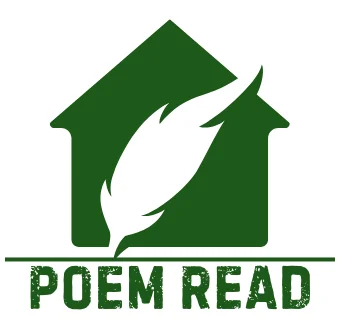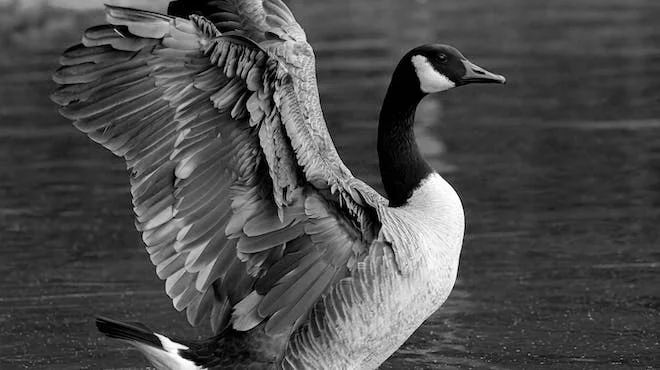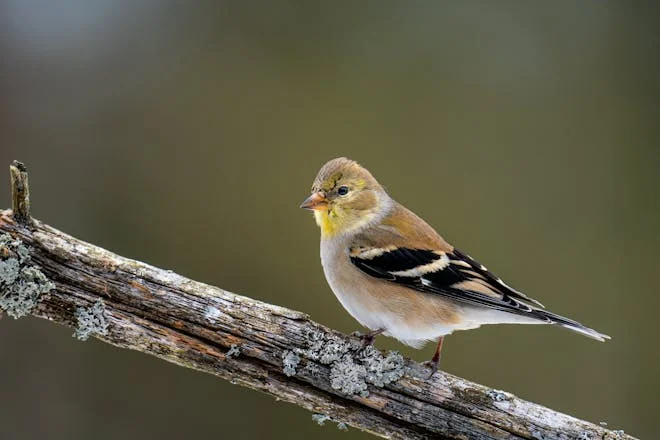
Robert Frost’s poem “A Minor Bird” is a short but meaningful piece that delves into human nature and our reactions to the seemingly minor inconveniences of life. The poem uses simple language with deep philosophical undertones. It invites readers to reflect on their attitudes towards nature and the trivial annoyances that sometimes disrupt their peace. In this article, we will explore various literary aspects of the poem, including its theme, tone, form, and structure. We will also provide a line-by-line analysis.
A Minor Bird
I have wished a bird would fly away,
And not sing by my house all day;
Have clapped my hands at him from the door
When it seemed as if I could bear no more.
The fault must partly have been in me.
The bird was not to blame for his key.
And of course there must be something wrong
In wanting to silence any song.
Content
- About the Author: Robert Frost
- Subject of 'A Minor Bird'
- Context of 'A Minor Bird'
- Theme and Tone of 'A Minor Bird'
- Form and Structure of 'A Minor Bird'
- Line-by-Line Analysis of "A Minor Bird" by Robert Frost
- Literary and Poetic Devices in "A Minor Bird" by Robert Frost
- Implications and Meanings of "A Minor Bird" by Robert Frost
- Interactive Summary
About the Author: Robert Frost
Robert Frost, a prominent figure in American literature, was born on March 26, 1874, in San Francisco, California. His family moved to New England due to his father’s sudden death in 1885, marking his early life with tragedy. This shift greatly impacted Frost’s later writings. It infused them with a deep connection to rural life and landscapes, which became central to his poetry.
After a brief stint at Dartmouth College, Frost returned to New England, where he took on various jobs, such as teaching and farming. These experiences provided him with a wealth of themes and settings for his poetry. Despite facing challenges in gaining recognition, Frost’s perseverance paid off when he relocated to England in 1912. There, he published his first two collections, “A Boy’s Will” (1913) and “North of Boston” (1914). These works established him as a prominent voice in modern American poetry upon his return to the United States.
Frost’s poetry is known for its use of everyday language, making his verses accessible yet deeply meaningful. He wrote about complex social and philosophical themes, investigating the human condition and the natural world’s place within it. Poems like “The Road Not Taken,” “Stopping by Woods on a Snowy Evening,” and “Mending Wall” highlight his skill in expressing complex ideas with simple, expressive language.
“A Minor Bird,” like many of Frost’s works, reflects his keen observations of nature and its connection to human emotions. Despite its simplicity, the poem delves into themes of human intolerance and the intrinsic value of the natural world. Understanding Frost’s background, influences, and recurring themes enriches the reader’s grasp of the depth and significance found within “A Minor Bird” and his overall body of work.
Subject of ‘A Minor Bird’
‘A Minor Bird’ by Robert Frost presents a deceptively simple narrative centered around the speaker’s interaction with a bird. On the surface, the poem describes the speaker’s initial irritation with the bird’s incessant singing. The speaker’s annoyance grows to the point where they wish to silence the bird. This reaction is indicative of a common human impulse to control or eliminate sources of discomfort, even when those sources are natural and harmless.
However, as the poem progresses, it becomes clear that Frost is exploring deeper themes related to human nature and self-reflection. The bird, in its repetitive song, symbolizes an element of nature that persists regardless of human preferences. The speaker’s frustration and subsequent realization about their behavior invite readers to reflect on their tendencies to react negatively to minor disturbances. This moment of self-awareness is crucial. It reveals the speaker’s acknowledgment of their own limitations and the need for a more harmonious coexistence with nature.
Therefore, the poem’s narrative goes beyond the simple annoyance that a bird’s song causes. It touches on broader themes like accepting things beyond control and the importance of introspection. Through the speaker’s journey from irritation to clarity, Frost explores human emotions and the need for self-reflection. “A Minor Bird” mirrors readers’ experiences with frustration, highlighting the potential for growth in recognizing and addressing these feelings.
Context of ‘A Minor Bird’
Understanding the context in which ‘A Minor Bird’ was written can significantly enhance our appreciation of its depth and nuance. Robert Frost composed this poem during a period marked by both personal introspection and broader socio-political changes. Written in the early 20th century, ‘A Minor Bird’ emerges from an era characterized by rapid industrialization, social upheaval, and significant shifts in cultural paradigms. These elements subtly run through the poem, adding layers of meaning that relate to the complexities of human experience.
Frost’s personal life during this period also provides valuable insights into the poem’s themes. Known for his deep connection to nature, Frost often found solace and inspiration in the natural world. This affinity is evident in ‘A Minor Bird,’ where the simple act of a bird singing becomes a focal point for broader reflections on human interaction with nature. Frost’s keen awareness of nature, combined with his thoughtful nature, probably shaped the poem’s reflective tone and its examination of themes like coexistence and humanity’s impact on the natural world.
Furthermore, the socio-political climate of the early 20th century cannot be overlooked when examining ‘A Minor Bird.’ This was a time when traditional rural lifestyles were increasingly being disrupted by urbanization and technological advancements. Frost, known for addressing the tension between rural life and modern progress, integrates these concerns into the essence of the poem. Therefore, the minor bird’s persistent song can be seen as a symbol of nature’s resilience amid the relentless march of progress. This invites the readers to consider the value of preserving natural harmony.
Theme and Tone of ‘A Minor Bird’

Theme
The theme of “A Minor Bird” revolves around self-awareness and the recognition of human fallibility. At its core, the poem explores the tension between human desires and the natural world. The speaker’s initial reaction to the bird’s song mirrors the common human urge to control or suppress natural elements seen as bothersome or inconvenient. This desire for control, however, is portrayed as misguided and fundamentally flawed.
One of the prominent themes is acceptance. The speaker’s transition from irritation to introspection represents a shift towards accepting the natural world as it is, rather than trying to change it to suit personal preferences. This acceptance is closely linked to the broader theme of humility. Additionally, by acknowledging that the fault lies within himself and not with the bird, the speaker reveals a major truth about human nature. It emphasizes the importance of coexisting with and appreciating the natural world instead of trying to dominate it.
Another theme is the inherent value of nature’s expressions. The bird’s song, though minor and perhaps insignificant on the surface, represents the beauty and persistence of life. The poem subtly suggests that every element of nature, no matter how small, has its place and purpose. Initially wanting to silence the bird, the speaker overlooks this value. However, his realization stresses the importance of appreciating all aspects of nature.
The theme of introspection and self-growth is also significant. The poem encourages readers to look within themselves and recognize their own faults and misconceptions. This self-reflection leads to personal growth, as the speaker comes to understand and appreciate the natural world more deeply.
Tone
The tone of “A Minor Bird” is dynamic, shifting from frustration to self-awareness and acceptance. The progression of tone mirrors the speaker’s internal journey and helps to convey the poem’s thematic depth.
At the beginning of the poem, the tone is one of irritation. The speaker’s wish for the bird to fly away and his clapping to scare it off reflect his annoyance. This irritation is palpable and relatable, drawing readers into the speaker’s immediate emotional state.
As the poem progresses, the tone shifts towards reflection. The line “The fault must partly have been in me” marks a turning point where the speaker begins to question his initial reaction. This introspective tone is calm and contemplative, contrasting with the earlier irritation. The use of the word “partly” suggests a gradual realization and a tentative acceptance of personal responsibility.
The poem concludes with a tone of humility and acceptance. The speaker’s admission that “the bird was not to blame” and the realization that “there must be something wrong / In wanting to silence any song” show a humbled and enlightened viewpoint. This gentle and accepting tone highlights the speaker’s newfound understanding and respect for the natural world.
Overall, the shifting tone enhances the poem’s message by taking readers through the speaker’s emotional journey. From irritation to reflection to acceptance, the tone emphasizes themes like self-awareness, humility, and nature appreciation. This dynamic tone also makes the poem more engaging, as it captures the natural progression of human thought and emotion.
Form and Structure of ‘A Minor Bird’
Overview
Robert Frost’s “A Minor Bird” is a succinct and straightforward poem, yet it carries significant depth and meaning. The form and structure of the poem play crucial roles in conveying its themes and enhancing its emotional impact. Comprising two quatrains, the poem is concise, but its simplicity allows the reader to focus on the underlying message. Let’s analyze the specifics of its form and structure to understand how they contribute to the poem’s overall effect.
Stanza and Line Length
“A Minor Bird” is composed of two stanzas, each containing four lines, making it a two-quatrain poem. This quatrain structure is typical of Frost’s style, providing a balanced and symmetrical framework. The consistent stanza length helps to maintain a rhythmic flow and ensures that each stanza feels complete and self-contained.
Each line of the poem is relatively short, with a simple and clear construction. This brevity mirrors the simplicity of the scene Frost describes—a bird singing outside the speaker’s house. The short lines also make the poem accessible, allowing readers to easily grasp its meaning and reflect on its themes.
Rhyme Scheme and Rhythm
The poem follows an AABB rhyme scheme in both stanzas. Here’s the breakdown:
First stanza:
(A): “I have wished a bird would fly away,”
(A): “And not sing by my house all day;”
(B): “Have clapped my hands at him from the door”
(B): “When it seemed as if I could bear no more.”
Second stanza:
(A): “The fault must partly have been in me.”
(A): “The bird was not to blame for his key.”
(B): “And of course there must be something wrong”
(B): “In wanting to silence any song.”
This consistent rhyme scheme adds a musical quality to the poem, which is somewhat ironic given the speaker’s initial irritation with the bird’s song. The rhyme helps to unify the poem, creating a sense of cohesion and harmony that contrasts with the speaker’s inner conflict. The regularity of the rhyme scheme also mirrors nature’s patterns, emphasizing the theme of accepting nature as it is.
Pauses and Line Breaks
The poem uses punctuation effectively to create pauses and guide the reader’s pacing. Each line ends with a clear punctuation mark, like commas or periods, signaling a brief pause. This structure allows the reader to reflect on each statement before moving on to the next. These pauses contribute to the contemplative tone of the poem, especially in the second stanza, where the speaker is introspective.
For example:
- “I have wished a bird would fly away, / And not sing by my house all day;” : The comma at the end of the first line provides a natural pause, giving the reader a moment to visualize and feel the speaker’s wish.
- “The fault must partly have been in me. / The bird was not to blame for his key.”: The period at the end of the first line in the second stanza emphasizes the speaker’s realization, making it a definitive statement.
Enjambment and Punctuation
While most lines end with punctuation marks, creating natural pauses, Frost also uses enjambment sparingly. This technique maintains a smooth flow between lines, preventing the poem from feeling choppy or disjointed.
For example:
- “Have clapped my hands at him from the door / When it seemed as if I could bear no more.”: The enjambment here connects the speaker’s action of clapping with the reason behind it, creating a continuous thought that spans two lines.
Frost’s use of punctuation is minimal but effective. There is no excessive punctuation that might disrupt the poem’s rhythm. Instead, the punctuation serves to enhance the clarity and emotional impact of each line.
Consistency and Impact
The form and structure of “A Minor Bird” significantly contribute to its impact. The regular rhyme scheme, balanced quatrain structure, and thoughtful use of punctuation combine to form a poem that is both straightforward and deeply meaningful. The consistent form mirrors nature’s constancy, while the organized stanzas reflect the order and harmony that the speaker eventually recognizes and values.
Line-by-Line Analysis of “A Minor Bird” by Robert Frost
First Stanza
“I have wished a bird would fly away,”
The poem opens with the speaker expressing a simple, yet somewhat harsh, wish for the bird to leave. The use of the word “wished” indicates a passive desire, suggesting that the speaker is somewhat resigned but still longing for relief from the annoyance. Additionally, the phrase “a bird” suggests any bird, showing the speaker’s general frustration with the creature’s presence.
“And not sing by my house all day;”
Here, the source of the speaker’s irritation becomes clear—the bird’s constant singing. The repetition of “all day” emphasizes the relentlessness of the bird’s song, heightening the speaker’s frustration. The choice of the word “house” makes the intrusion feel personal and close, emphasizing the bird’s impact on the speaker’s personal space.
“Have clapped my hands at him from the door”
The speaker moves from a passive wish to an active attempt to silence the bird. Clapping hands is a harmless but direct action to scare the bird away. The phrase “from the door” indicates the speaker’s reluctance to engage more directly with the bird, suggesting a desire to keep some distance. This action highlights the speaker’s escalating annoyance.
“When it seemed as if I could bear no more.”
The phrase “could bear no more” signals the peak of the speaker’s irritation. This line conveys a sense of desperation, showing that the bird’s singing has pushed the speaker to their limit. The use of “seemed” indicates a subjective experience, highlighting that the irritation is more about the speaker’s perception than the bird’s actual behavior.
Second Stanza
“The fault must partly have been in me.”
This line marks a turning point in the poem. The speaker begins to reflect on their own reaction, admitting that the irritation might not solely be the bird’s fault. The word “partly” suggests an acknowledgment of shared responsibility, introducing the theme of self-awareness. This introspection highlights the speaker’s shift from blaming the bird to reflecting on their own mindset.
“The bird was not to blame for his key.”
The speaker further acknowledges that the bird’s song, or “key,” is natural and not something for which the bird can be blamed. “Key” refers to the pitch or tone of the bird’s song, emphasizing its naturalness. This line underscores the idea that nature operates independently of human desires and that the bird’s song is a normal, innocent aspect of its existence.
“And of course there must be something wrong”
The phrase “of course” indicates a realization that should have been obvious to the speaker. This line suggests a deeper understanding that the irritation stems from the speaker’s own inability to appreciate the bird’s song. The word “wrong” signals the speaker’s recognition of their flawed desire to silence something natural and beautiful.
“In wanting to silence any song.”
The final line brings the poem’s message to a conclusion. The use of “any song” broadens the scope from the specific bird to a general principle, suggesting that it is inherently wrong to want to silence natural expressions. This line encapsulates the theme of accepting and appreciating nature rather than attempting to control it. The realization implies a broader moral or ethical awakening in the speaker.
Literary and Poetic Devices in “A Minor Bird” by Robert Frost
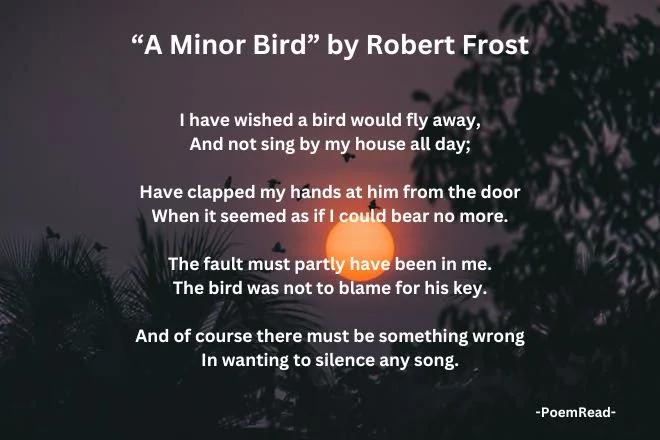
Imagery
Imagery is used effectively throughout the poem to create vivid pictures in the reader’s mind. Frost’s choice of simple, clear images helps ground the poem in relatable reality.
- Bird singing: “And not sing by my house all day;” – This line conjures the persistent presence of the bird’s song, allowing readers to feel the speaker’s irritation.
- Clapping hands: “Have clapped my hands at him from the door” – This image vividly captures the speaker’s action and frustration.
Symbolism
Symbolism is a significant device in “A Minor Bird,” with the bird and its song symbolizing the natural world and its uncontrollable aspects.
- The bird: Represents nature and its inherent qualities that are beyond human control.
- The bird’s song: Symbolizes the beauty and persistence of nature. The song is natural and innocent, contrasting with the speaker’s initial desire to silence it.
Tone
The tone of the poem shifts from irritation to self-awareness and acceptance, mirroring the speaker’s emotional journey.
- Irritation: The tone in the first stanza is one of frustration and annoyance, as the speaker wishes the bird away and takes action to silence it.
- Self-awareness and acceptance: In the second stanza, the tone becomes reflective and contemplative, as the speaker realizes the fault lies within himself and acknowledges the wrongness in wanting to silence any song.
Rhyme Scheme and Rhythm
The poem follows an AABB rhyme scheme, providing a musical quality that mirrors the bird’s persistent song.
- Rhyme scheme: The consistent AABB pattern creates a sense of harmony and unity within the poem, despite the speaker’s initial discord.
- Rhythm: The regular rhythm of the poem reflects the natural flow of the bird’s song, enhancing the contrast between the speaker’s irritation and the natural world’s beauty.
Enjambment and Punctuation
Frost uses enjambment and punctuation to control the flow of the poem and emphasize key ideas.
- Enjambment: “Have clapped my hands at him from the door / When it seemed as if I could bear no more.” – This enjambment connects the speaker’s action with the reason behind it, creating a continuous thought.
- Punctuation: The use of commas and periods creates natural pauses, guiding the reader’s pacing and allowing reflection on each line’s meaning.
Alliteration and Assonance
These are used subtly to add musicality and emphasis to the poem.
- Alliteration: “Have clapped my hands at him from the door” – The repetition of the “h” sound emphasizes the speaker’s action and frustration.
- Assonance: “The bird was not to blame for his key.” – The repetition of the “o” sound creates a soothing effect, reflecting the speaker’s realization and acceptance.
Irony
Irony is present in the poem’s conclusion, where the speaker recognizes the fault in wanting to silence a natural song. Initially, the speaker believes the bird’s song is the problem, but ultimately realizes the desire to silence it is flawed. This reversal highlights the theme of self-awareness and humility.
Metaphor
While not explicitly stated, the metaphor of the bird’s song as a symbol of life’s uncontrollable aspects is pivotal to the poem’s theme.
- The bird’s song: Metaphorically represents the persistence and beauty of life and nature, which should be appreciated rather than suppressed.
Implications and Meanings of “A Minor Bird” by Robert Frost
Robert Frost’s poem “A Minor Bird” may be short, but its depth goes beyond the surface interaction between the speaker and the bird. The poem’s implications and meanings touch on themes of human nature, self-awareness, and the relationship between humanity and the natural world. Let’s dive deeper into these aspects.
Human Nature and Control
One of the main implications of the poem is the human desire to control and alter nature to fit personal preferences. The speaker’s initial reaction to the bird’s song—wishing it would fly away and clapping to scare it off—reflects a common tendency to dominate one’s environment. This desire is driven by a need for comfort and convenience, often leading to efforts to suppress or eliminate elements of nature that are seen as nuisances.
The poem suggests that this impulse is inherently flawed. The speaker’s realization that the fault lies partly within himself, and not with the bird, highlights the idea that discomfort often comes from internal issues rather than external annoyances. This insight encourages readers to reflect on their own reactions to the world around them. Furthermore, it prompts them to consider whether their frustrations are justified or if they stem from a lack of understanding or acceptance.
Self-Awareness and Personal Growth
The speaker’s journey from irritation to introspection and finally to acceptance is central to the poem’s meaning. This progression mirrors the process of personal growth and self-awareness. By admitting that “The fault must partly have been in me,” the speaker takes a crucial step towards understanding and addressing his own shortcomings. This line indicates a moment of humility and self-awareness, suggesting that true wisdom comes from looking inward and recognizing one’s own faults.
This theme is universally applicable, as it speaks to the human experience of growth and maturity. The poem encourages readers to be introspective and to consider their own attitudes and behaviors when faced with minor annoyances or conflicts. It emphasizes the importance of humility and self-awareness in achieving personal growth.
The Value of Nature and Its Expressions
Another significant implication of “A Minor Bird” is the inherent value of nature and its expressions. The bird’s song, though initially perceived as a nuisance, ultimately represents the beauty and persistence of life. By recognizing that “The bird was not to blame for his key,” the speaker acknowledges that the bird’s song is a natural and innocent part of the world.
This realization underscores the idea that every aspect of nature, no matter how small or seemingly insignificant, has intrinsic value. The poem suggests that human beings should strive to appreciate and coexist with nature rather than attempt to dominate or silence it. This message is particularly relevant in the context of environmental conservation, reminding readers of the importance of respecting and preserving the natural world.
The Ethics of Silence and Suppression
The poem also touches on ethical considerations related to silence and suppression. The final lines, “And of course there must be something wrong / In wanting to silence any song,” imply a broader moral lesson. The act of wanting to silence the bird’s song is presented as inherently wrong, suggesting that there is an ethical duty to allow natural expressions to exist without interference.
This theme can be extended to human interactions as well. It raises questions about the morality of suppressing voices, whether in nature or society. The poem encourages a stance of tolerance and respect for all forms of expression, advocating for a world where diversity and differences are not only accepted but cherished.
The Universal Struggle with Minor Annoyances
On a more personal level, the poem speaks to the universal human struggle with minor annoyances and the challenge of maintaining perspective. The bird’s song represents the everyday irritations that everyone encounters. The speaker’s initial reaction is one that many can relate to—wanting to remove or escape from a source of irritation.
However, the poem’s ultimate message is one of perspective and patience. By shifting the focus from external blame to internal reflection, the speaker learns to see the bird’s song in a new light. This shift encourages readers to approach their own frustrations with a similar mindset. It suggests looking for ways to grow and learn from these experiences rather than simply seeking to eliminate them.
Interactive Summary
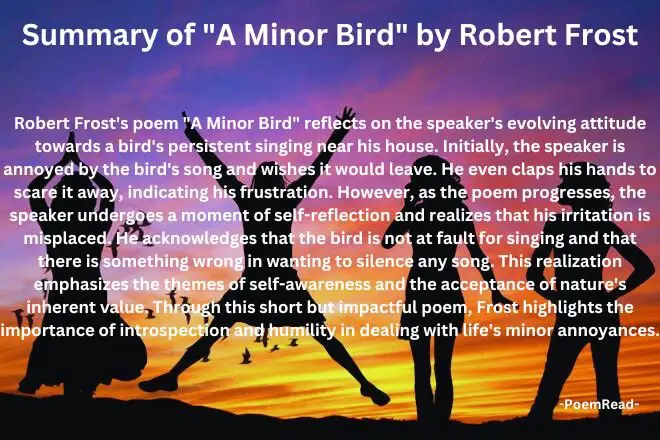
In “A Minor Bird,” Robert Frost uses the simple annoyance of a bird’s song to explore deeper themes of human arrogance and the need for humility. The poem’s straightforward structure and language make it accessible, yet its message resonates on a deeper level. By the end of the poem, the speaker realizes that the true fault lies not with the bird but with his own perspective, highlighting a universal truth about the human condition.
Through this poem, Frost invites readers to reflect on their own reactions to the minor irritations of life and to consider the broader implications of their desires to control or silence the natural world around them. This humble acceptance of nature’s ways is a testament to Frost’s enduring wisdom and his ability to capture the complexities of human experience in just a few lines of verse.
If “A Minor Bird” got your interest, dive into our analysis of “Wild Geese” by Mary Oliver! You’ll uncover a captivating exploration of nature and self-discovery that complements the themes found in Frost’s poem. Happy reading!
RELATED POSTS
View all
